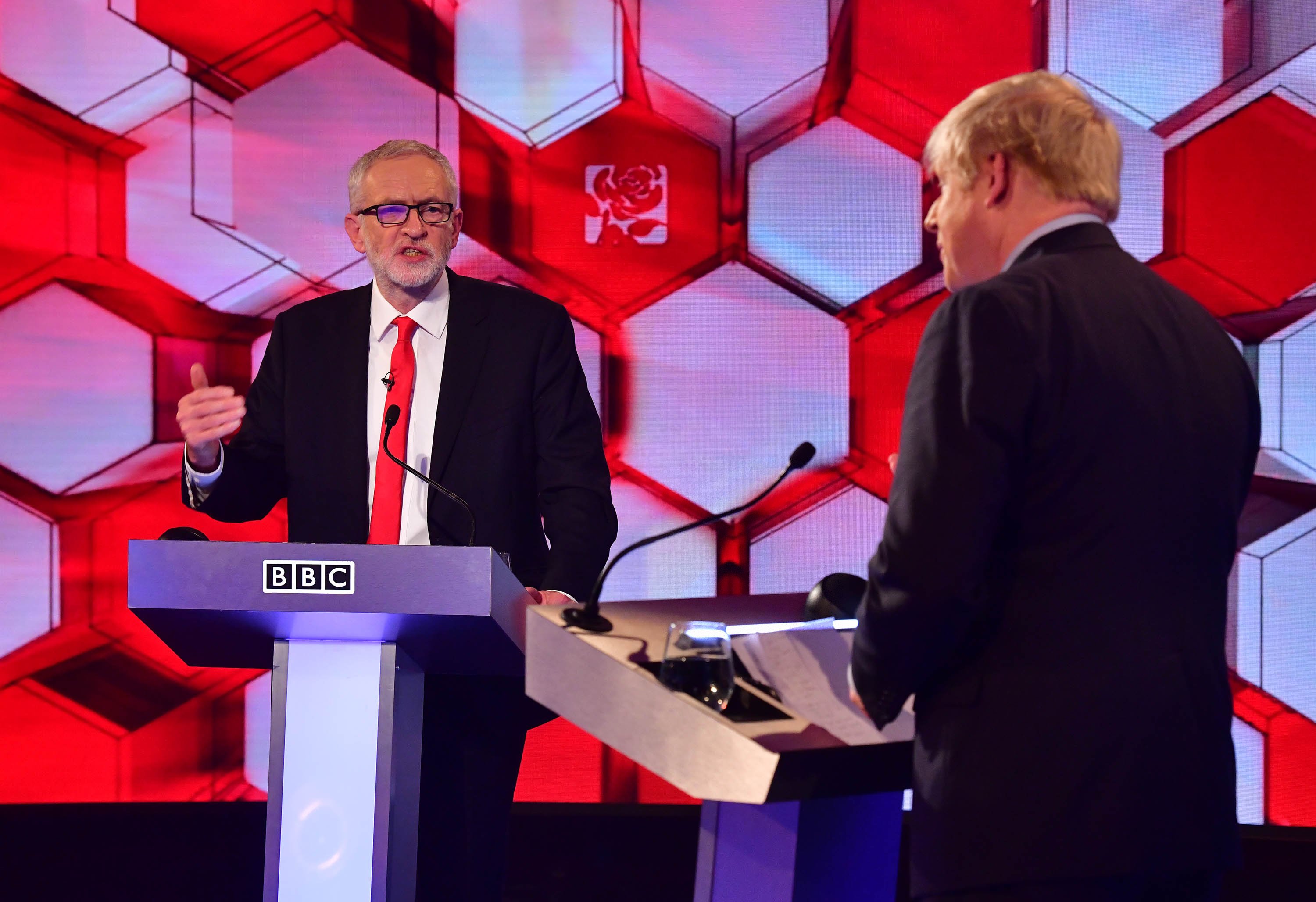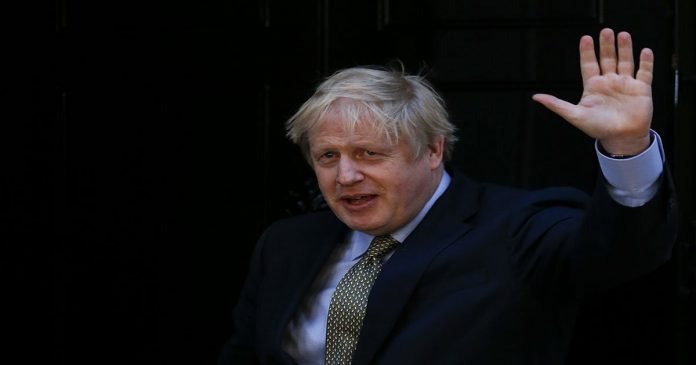All the opinion polls indicated the Conservative Party would win the U.K. General Election on Dec. 12, but few people expected the Boris Johnson-led Tories to achieve an absolute parliamentary majority of 80.
Labour, with only 202 MPs of its own at Westminster, faces its lowest presence since 1935, and this is being seized upon by leader Jeremy Corbyn’s numerous and influential adversaries spanning politics, big business, military and media to lobby for his immediate departure.
After all, they have never been reconciled to the spectacle of a long-standing Marxist heading one of Britain’s two established parties of government.
Hence the ferocious, daily onslaught against Corbyn’s political record and personal character, long-simmering since he was first elected Labour leader by the party’s trade union bloc supporters and fairly young mass membership in 2015.
Labour’s heavy defeat provides an opportunity to replace him with someone more acceptable to Britain’s ruling establishment and the large swathe of middle-ground public opinion shaped – at least to some extent – by the mostly right-wing press and broadcasting media.
However, Corbyn’s enemies inside the Labour Party seek more than mere removal of one person and his allies. They also want to dump many of the party’s radical and left-wing policies, some of which, like public ownership of the railways and energy utilities and massive new investment in public services and public sector housing, are rather popular.
Going even further, there are powerful forces in Britain – with allies inside the Labour Party itself – who want to seize the moment to “Europeanise” the Labour Party so that it more closely resembles the traditional social-democratic parties across the European Union.
In most cases, from France and the Netherlands to Italy and Greece, these have abandoned all aspirations to a mixed economy, economic planning and radical wealth redistribution, embracing instead a neoliberal model of capitalism with its fertilisation of corporate domination, market forces, privatisation, fiscal austerity and labour flexibility.
Central to this agenda in Britain would be a renewed drive to weaken or break the link between the Labour Party and most of Britain’s largest trade unions, many under left-wing leadership.
Reluctant to stand for the post of party leader in the first place, Corbyn has now announced his intention to stand down. Labour members and registered supporters will elect a new leadership early in 2020, and candidates are already coming forward from the right, center and left.
Those on the right and in the center may well include prominent MPs whose anti-Brexit obsession helped bring about Labour’s defeat and, therefore, Corbyn’s downfall.
In the 2017 General Election, Labour’s progressive manifesto had pledged to honour the decision made by 17.4 million referendum voters in 2016 that the U.K. should quit the EU. That promise helped Corbyn and his party increase its parliamentary representation by 30 and its share of the popular vote by 10 percentage points to 41%, among the highest in 50 years.
However, many Labour MPs, and a circle around former Prime Minister Tony Blair, had no intention of allowing Brexit to happen. They supported the millionaire-funded “People’s Vote” movement for a second referendum to overturn Brexit.
By 2019, after most Labour MPs had helped frustrate all moves towards any kind of exit from the EU, support for a second referendum had become official Labour policy. Opponents of Brexit inside the Labour Party and beyond wheeled out all kinds of excuses for blocking or overturning – instead of implementing – the democratic referendum of 2016.
Unsurprisingly, many Leave supporters were angered by this. In many close-knit communities hard hit by industrial decline, people saw this as yet one more – and especially grievous – example of neglect or even betrayal by their own [Labour] party and a London metropolitan “elite.”

The irony is that before his elevation to the Labour leadership, Jeremy Corbyn himself had a long record of opposing the EU for the same left-wing and internationalist reasons as Britain’s Communist Party. However, during his leadership, he and most other Labor “Eurosceptics” ceased their public opposition, surrendering the anti-EU cause almost entirely to Conservative and other right-wing elements.
Several million erstwhile Labour loyalists registered their pro-Brexit protest in the “people’s vote” of December 12. They either abstained, or plumped for the newly-created Brexit Party, or they broke the habit of generations and voted for the Tory slogan to “Get Brexit Done.”
That was enough for Labour to lose 52 seats in pro-Leave constituencies to the Conservatives. Boris Johnson now has enough support to take the U.K. out of the EU no later than January 31 next year.
Then, the prime minister’s problems will really begin. He is committed to concluding a new post-Brexit free trade agreement with the EU by the end of 2020. Business leaders and many MPs in all parties want to maintain the country’s subordination to the neoliberal rules of the EU Single Market and Customs Union. Other Conservative MPs want no such restrictions on national sovereignty.
In Scotland, the dominant Scottish National Party (SNP) is demanding an early referendum, aimed at quitting the centuries-old Union and regaining their country’s ancient sovereignty with the hope of rejoining the EU.
In Northern Ireland, Irish republican and nationalist MPs now outnumber pro-U.K. unionists for the first time since the province was created by the British in 1921. This adds to the pressures threatening the very existence of the United Kingdom.
Meanwhile, Boris Johnson and his new regime in Britain have promised to undertake major programs of investment in health, education, policing and the armed forces, but without any substantial increase in taxation. The Conservatives also intend to curb the ability of trade unions to take effective industrial action in important or essential public services.
Three questions arise. Will the party’s corporate sponsors permit any real abandonment of austerity and monetarist policies? Can a powerful extra-parliamentary alliance be constructed to challenge right-wing policies in workplaces and working-class communities across Britain? And will the labour movement and its mass electoral party rebuild and renew itself without abandoning the left policies which, after all, still secured a higher share of the popular vote in 2019 than Labour had managed in 1987, 2010 and 2015?
Robert Griffiths is a former Senior Lecturer in Political Economy and History at the University of Wales and currently the General Secretary of the Communist Party of Britain.
Support Independent Journalism Today
Our unwavering dedication is to provide you with unbiased news, diverse perspectives, and insightful opinions. We're on a mission to ensure that those in positions of power are held accountable for their actions, but we can't do it alone. Labour Heartlands is primarily funded by me, Paul Knaggs, and by the generous contributions of readers like you. Your donations keep us going and help us uphold the principles of independent journalism. Join us in our quest for truth, transparency, and accountability – donate today and be a part of our mission!
Like everyone else, we're facing challenges, and we need your help to stay online and continue providing crucial journalism. Every contribution, no matter how small, goes a long way in helping us thrive. By becoming one of our donors, you become a vital part of our mission to uncover the truth and uphold the values of democracy.
While we maintain our independence from political affiliations, we stand united against corruption, injustice, and the erosion of free speech, truth, and democracy. We believe in the power of accurate information in a democracy, and we consider facts non-negotiable.
Your support, no matter the amount, can make a significant impact. Together, we can make a difference and continue our journey toward a more informed and just society.
Thank you for supporting Labour Heartlands









